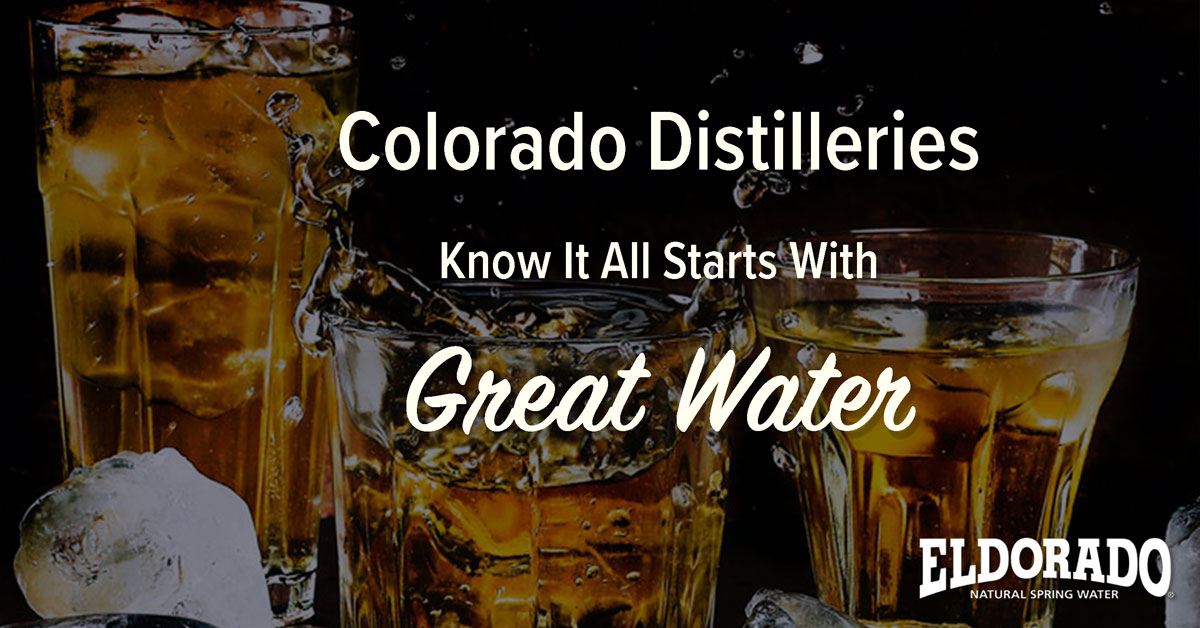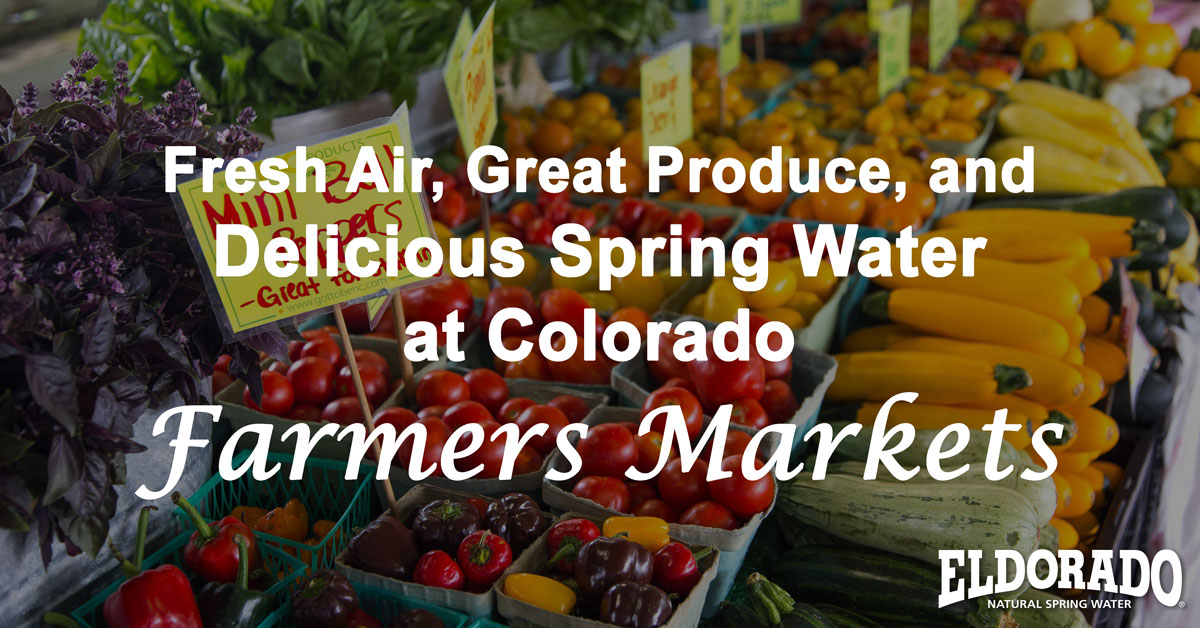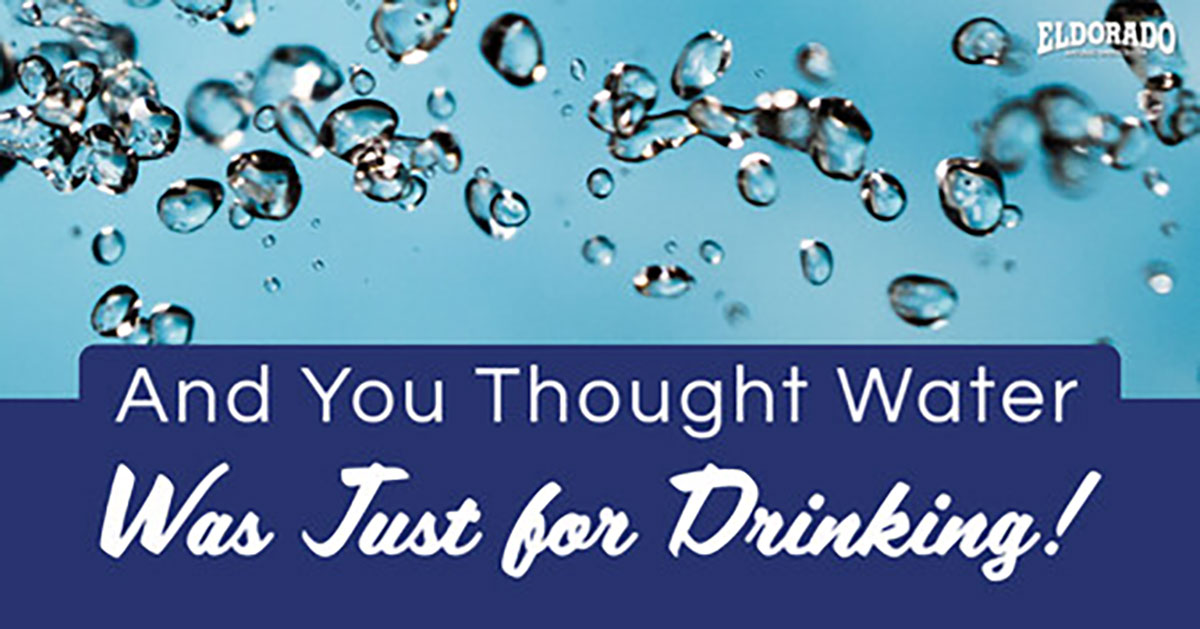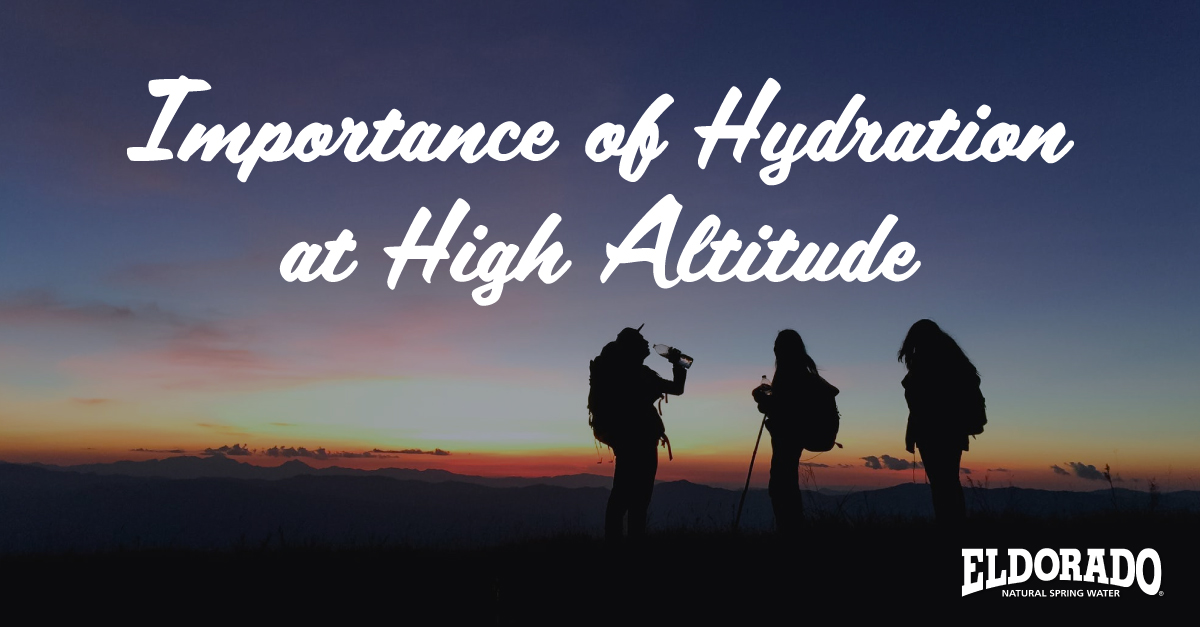We are very proud of our reputation within the brewing and distilling industry here in Colorado. We ...
Colorado Impact
Collection of posts related to Colorado events, functions, news, and Eldorado's involvement. Colorado Impact
One of the best things about summertime in Colorado is the many wonderful festivals held at location...
It’s an annual event that marks the start of summer in Colorado: The Boulder Creek Festival. Held in...
Nothing says “summer” like a leisurely stroll through a farmers market in Colorado. The sun is shini...
While we just KNOW that our water is the best tasting water you can find here in Colorado (or anywhe...
Electrolytes and hydration are an important aspect of your overall health. To get an better start un...
Where will Eldo be?
Furry Scurry - May 2
Boulder Farmers Market * - Every Saturday April 6 - November 16
Longmont Farmers Market * - Every Saturday April 6 - November 16
Boulder International Film Festival - April 9-12
Erie Springfest * - TBD
Tulip Fairy & Elf Festival* - April
Boulder Creek Festival* - May 29-31
* Visit our booth while you are at the event.











